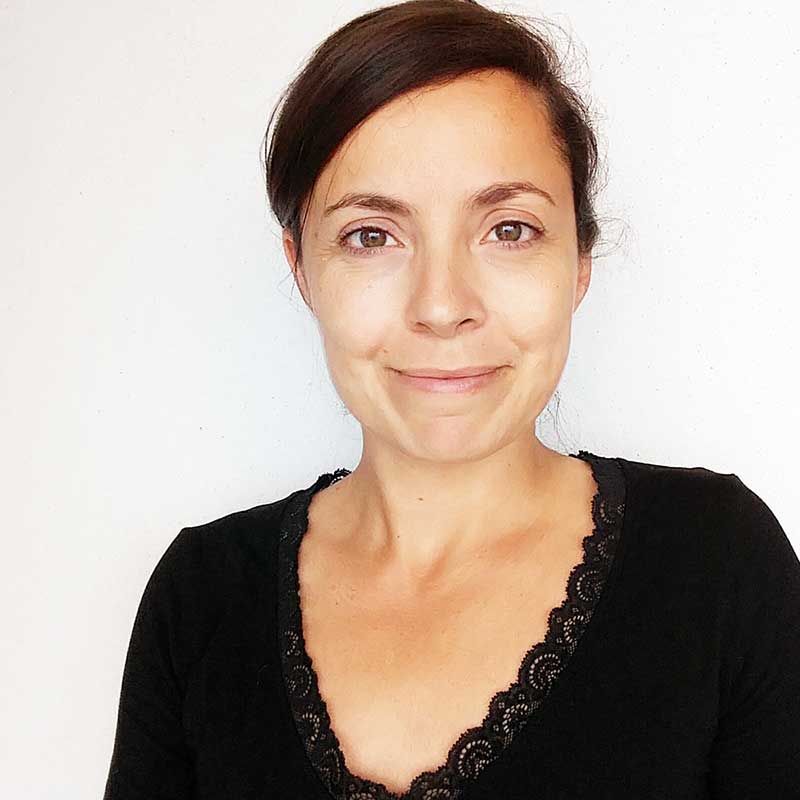Introducing Dr Aida Suarez-Gonzalez
What primarily developed your interest in researching Alzheimer’s?
It slowly grew during my years as a clinical neuropsychologist at the Memory and Cognitive Disorders Unit in the Virgen del Rocio University Hospital in Seville, Spain. I spent almost nine years working with people living with neurological conditions in this Unit, many of whom had Alzheimer’s disease.
The beginning of my research adventure began with the inspiring neurologists I was working with at the time. They infused me with their compassionate never-giving-up attitude and profound respect for life. They took great pride in delivering high quality medical care using their skills and knowledge to alleviate suffering and preserve a patient’s dignity. I then learned that when there is no cure and it seems there is nothing else you can do, a whole universe of things that you can do to help unfolds before you. My level of commitment with my profession skyrocketed as a result of this and because I became so inspired, I took the step into research.
Currently, what is the key focus of your research?
My current research has a strong translational focus. I research non-pharmacological interventions and assistive technologies to help people to live well with dementia. Living well with dementia is more than improving cognitive function or delaying functional dependency. It is about supporting people to retain their identity, remain connected and enhance their life experience in ways that are meaningful and fulfilling.
For instance, in the most recent project I led, along with my team at UCL, was the development of a reading app to support reading in people living with neurodegenerative conditions that impair visual processing. I applied a co-design strategy, which means bringing the patients into the process of exploring, finding solutions and testing the prototypes with them. This is a very effective way to develop services for, and with, people living with dementia (and lots of fun!). We run a clinical trial to test the app’s efficacy (looking at both objective and subjective experience measures) and we are publishing results very soon.
What has been the most surprising finding during your research career?
Actually, testing a hypothesis and confirming that the results were in keeping with a particular clinical perception that I had hold for years! When I entered research I had quite a lot of experience in dementia and many ideas of what I wanted to do but embryonic skills of how to do it. Seeing my first clinically-driven research outcome in front of me was quite an experience.
When people learn you are involved in researching Alzheimer’s, what is the main question they ask?
They ask what I exactly do and if there are prospects for a cure coming soon.
In your opinion, how important is collaboration and integrating multiple research strategies to help unravel the complexities of Alzheimer’s?
Collaboration is paramount. Not only because of the larger datasets that you can collect but because of the amount of resources, support, and the plurality of skills and expertise that you recruit through a group of different teams working together on the solution for a problem.
What is the most important thing to help fast track us to make a key breakthrough in slowing the progress of, preventing, or even curing Alzheimer’s?
A radical change and modernisation in the structure of the academic system, so talent can thrive, and more space is created for real innovation. The way the research world is designed is, paradoxically, behind the times: bureaucratically unbearable and inefficient, which results in a waste of resources and time. Science is often a unstable job, with poor career progression prospects. Life-work balance is insane in many labs, gender inequality is a very serious issue in academia (women are 45% of the academic workforce, but hold only 20% of professorships), and a long process, which includes the (unblind) peer review system that we all criticise but continue supporting.
Tell us something about yourself that keeps you motivated and that might surprise readers.
It might sound a bit gloomy, but it is actually a reflection I find compelling: I think a lot about death. About my own death. Discerning between what is relevant and irrelevant becomes very simple in the face of death. That helps me focus and it gives me perspective to navigate obstacles when things are not going well. It reminds me that I should celebrate my life everyday – not taking it for granted, and that I have a flexible set of skills that may allow me to contribute to healthcare in many different creative ways. I also think often of my colleagues and the junior scientists I supervise, who are a very cool and lively bunch and I find really enjoyable and rewarding to work with (which makes me extra lucky because we all know that is not that common in academia). And motivation is usually back on track …
And finally … is there a question that you’ve always wished someone had asked about your research, but never has?!
Yes, “Would you like to help me implement that in my clinic/hospital?”. And just in case someone is wondering, I would very likely respond “yes, let’s do it”.
Dr Aida Suarez-Gonzalez is a Research Associate and Clinical Neuropsychologist at the Dementia Research Centre at University College London (UK). She is interested in visual function, language and memory in degenerative dementia and is currently working on the development of Read Clear, an App designed to help people to read who have posterior cortical atrophy (PCA) and other degenerative conditions that impair vision. Read Clear aims to help for example, getting lost on the page, words cluttering up and difficulty following text along a line.
Dr Suarez-Gonzalez also investigates the different types of Alzheimer’s to improve diagnosis and help monitor disease progression.
Find out more about Dr Suarez-Gonzalez’s research by:
- Visiting her website at University College London
- Learning about her app, Read Clear
- Following her on Twitter: @Aida_Suarez_G


